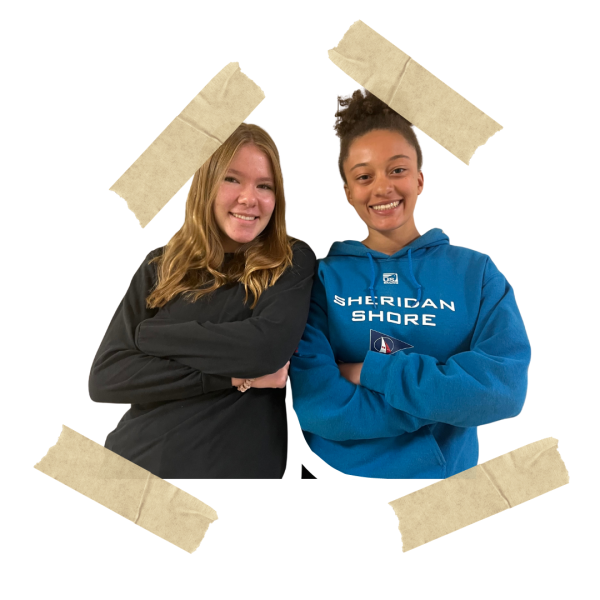Opinion | Students take on the weight of the environmental crisis
On Friday, April 22, more than 193 countries around the world will celebrate Earth Day, a holiday established in 1970 to draw international attention toward protecting our homes. Among the study body here at ETHS, there seems to be a fairly widespread understanding of the science behind anthropogenic climate change, as well as anger towards the institutions motivated by wealth and power that have destabilized our environment and our future. The annual walkout for climate justice is a great example of how this awareness and passion are powerfully demonstrated. How does ETHS as an administration, however, reflect their emboldened student body? How does the community that we live in, that we strive to improve, keep the torch burning?
Lily Aaron is a member of E-Town Sunrise and an outspoken climate activist. She was invited to attend the 2021 United Nations Climate Change Conference in Glasgow in October. Aaron says “Having the privilege of attending COP26 enabled me to see how crucial local action truly is”. . ETHS has taken action towards sustainability, for example, partnering with the Talking Farm to support organic food sourcing and priding themselves on composting, but these are still relatively slight acts, and they don’t really have any direct influence on the student body. There is still a lack of systemic action toward educating students about climate change and working to fight against it. E-Town Sunrise (an environmentalist organization with a chapter in Evanston) has created the Climate Justice Conference with administrators to discuss tangible solutions to climate change, but the problem is initiatives like these have been pushed to the back burner for months and take forever to complete. Climate change can’t be put on the back burner. Aaron says she wants to see more urgency from the ETHS administration. E-Town Sunrise also requested an official climate coordinator at ETHS, so our voices would be actively represented in an administrative sense.
Aaron notes “Adults have the capacity to do so much more”.
While our voices do count, it shouldn’t just be in the hands of highschool students to implement climate action at our school. Aaron says. “The minute ETHS hires someone who is qualified and actually values student input, we can start to make legitimate progress.” You might be wondering: What can I do? Talk! Discuss climate change, how it affects you and your ideas for progress. This fight is long from over, and there is strength in numbers. When asked what COP26 taught her, Lily answers; “When we mobilize entire communities with those who bear the most weight at the forefront of this movement, there is no way we cannot move forward.”
ETHS is no inconsequential body. In fact, in early 2021, three ETHS student activists planned a campaign against the school’s paper usage, collaborating with a tree planting program, Tree-Plenish. Tree-Plenish is a reputable organization that has worked with dozens of schools nationwide on acting towards sustainability. They found that in order to achieve their goal of offsetting 50 percent of the school’s total paper usage, 280 trees had to be planted. That is a huge footprint. This school is a role model for the Evanston community via the thousands of students that are educated here, and as an institution, ETHS is well established and influential. If the administration can do their part in fighting this climate crisis, with constant, researched dedication to what is truly effective, we can work towards making our community a much better place and only through genuine efforts on the local scale can we begin to influence the world around us.
Your donation will support the student journalists of the Evanstonian. We are planning a big trip to the Journalism Educators Association conference in Philadelphia in November 2023, and any support will go towards making that trip a reality. Contributions will appear as a charge from SNOSite. Donations are NOT tax-deductible.











